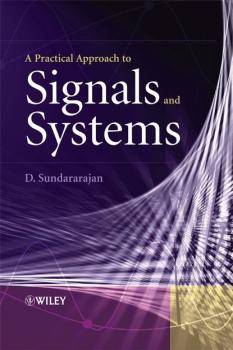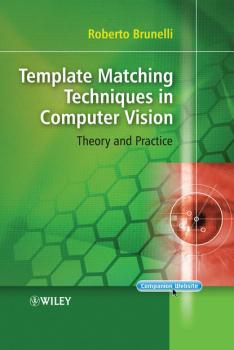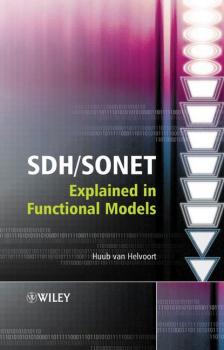Группа авторов
Список книг автора Группа авторовA Practical Approach to Signals and Systems
Concisely covers all the important concepts in an easy-to-understand way Gaining a strong sense of signals and systems fundamentals is key for general proficiency in any electronic engineering discipline, and critical for specialists in signal processing, communication, and control. At the same time, there is a pressing need to gain mastery of these concepts quickly, and in a manner that will be immediately applicable in the real word. Simultaneous study of both continuous and discrete signals and systems presents a much easy path to understanding signals and systems analysis. In A Practical Approach to Signals and Systems, Sundararajan details the discrete version first followed by the corresponding continuous version for each topic, as discrete signals and systems are more often used in practice and their concepts are relatively easier to understand. In addition to examples of typical applications of analysis methods, the author gives comprehensive coverage of transform methods, emphasizing practical methods of analysis and physical interpretations of concepts. Gives equal emphasis to theory and practice Presents methods that can be immediately applied Complete treatment of transform methods Expanded coverage of Fourier analysis Self-contained: starts from the basics and discusses applications Visual aids and examples makes the subject easier to understand End-of-chapter exercises, with a extensive solutions manual for instructors MATLAB software for readers to download and practice on their own Presentation slides with book figures and slides with lecture notes A Practical Approach to Signals and Systems is an excellent resource for the electrical engineering student or professional to quickly gain an understanding of signal analysis concepts – concepts which all electrical engineers will eventually encounter no matter what their specialization. For aspiring engineers in signal processing, communication, and control, the topics presented will form a sound foundation to their future study, while allowing them to quickly move on to more advanced topics in the area. Scientists in chemical, mechanical, and biomedical areas will also benefit from this book, as increasing overlap with electrical engineering solutions and applications will require a working understanding of signals. Compact and self contained, A Practical Approach to Signals and Systems be used for courses or self-study, or as a reference book.
Template Matching Techniques in Computer Vision
The detection and recognition of objects in images is a key research topic in the computer vision community. Within this area, face recognition and interpretation has attracted increasing attention owing to the possibility of unveiling human perception mechanisms, and for the development of practical biometric systems. This book and the accompanying website, focus on template matching, a subset of object recognition techniques of wide applicability, which has proved to be particularly effective for face recognition applications. Using examples from face processing tasks throughout the book to illustrate more general object recognition approaches, Roberto Brunelli: examines the basics of digital image formation, highlighting points critical to the task of template matching; presents basic and advanced template matching techniques, targeting grey-level images, shapes and point sets; discusses recent pattern classification paradigms from a template matching perspective; illustrates the development of a real face recognition system; explores the use of advanced computer graphics techniques in the development of computer vision algorithms. Template Matching Techniques in Computer Vision is primarily aimed at practitioners working on the development of systems for effective object recognition such as biometrics, robot navigation, multimedia retrieval and landmark detection. It is also of interest to graduate students undertaking studies in these areas.
SDH / SONET Explained in Functional Models
H/SONET Explained in Functional Models represents a fresh approach to the modeling of transport network technologies. This practical guide and reference text uncovers the description of SDH (Synchronous Digital Hierarchy), SONET (Synchronous Optical Network) and OTN (Optical Transport Network) transport networks and equipment using functional/atomic modeling techniques. It clearly explains the use of models in the ITU-T and ETSI standards, the transport networks and the transport equipment in the definition, implementation and deployment phase. Pays particular attention to the SDH and OTN standards using functional/atomic modeling, as used and defined in the ITU-T (International Telecommunication Union) recommendations G.805 and G.809 and the ETSI (European Telecommunications Standards Institute) standards EN 300 417, as opposed to the formal language used in the ANSI (American National Standards Institute) standard T1.105. Topics of discussion range from functional modeling high level transport networks to the most detailed device functions, aided by a variety of figures and tables. Shows that functional modeling is not restricted to SDH/SONET but that is can be used to describe any transport network, connection-oriented and connectionless, e.g. Ethernet and MPLS networks. Written by a leading authority in the area, this is the first book dedicated to the novel approach of using functional modeling to describe SDH/SONET/OTN networks. This volume will appeal to manufacturers, engineers and all those involved in developing and deploying SDH, SONET, OTN, Ethernet, MPLS technology. It will be an invaluable resource for postgraduate students on network communications courses and advanced users using functional modeling.
Robust Control Design: An Optimal Control Approach
Comprehensive and accessible guide to the three main approaches to robust control design and its applications Optimal control is a mathematical field that is concerned with control policies that can be deduced using optimization algorithms. The optimal control approach to robust control design differs from conventional direct approaches to robust control that are more commonly discussed by firstly translating the robust control problem into its optimal control counterpart, and then solving the optimal control problem. Robust Control Design: An Optimal Control Approach offers a complete presentation of this approach to robust control design, presenting modern control theory in an concise manner. The other two major approaches to robust control design, the H_infinite approach and the Kharitonov approach, are also covered and described in the simplest terms possible, in order to provide a complete overview of the area. It includes up-to-date research, and offers both theoretical and practical applications that include flexible structures, robotics, and automotive and aircraft control. Robust Control Design: An Optimal Control Approach will be of interest to those needing an introductory textbook on robust control theory, design and applications as well as graduate and postgraduate students involved in systems and control research. Practitioners will also find the applications presented useful when solving practical problems in the engineering field.
Relativistic Quantum Mechanics and Field Theory
An accessible, comprehensive reference to modern quantum mechanics and field theory. In surveying available books on advanced quantum mechanics and field theory, Franz Gross determined that while established books were outdated, newer titles tended to focus on recent developments and disregard the basics. Relativistic Quantum Mechanics and Field Theory fills this striking gap in the field. With a strong emphasis on applications to practical problems as well as calculations, Dr. Gross provides complete, up-to-date coverage of both elementary and advanced topics essential for a well-rounded understanding of the field. Developing the material at a level accessible even to newcomers to quantum mechanics, the book begins with topics that every physicist should know-quantization of the electromagnetic field, relativistic one body wave equations, and the theoretical explanation of atomic decay. Subsequent chapters prepare readers for advanced work, covering such major topics as gauge theories, path integral techniques, spontaneous symmetry breaking, and an introduction to QCD, chiral symmetry, and the Standard Model. A special chapter is devoted to relativistic bound state wave equations-an important topic that is often overlooked in other books. Clear and concise throughout, Relativistic Quantum Mechanics and Field Theory boasts examples from atomic and nuclear physics as well as particle physics, and includes appendices with background material. It is an essential reference for anyone working in quantum mechanics today.
Health Physics in the 21st Century
Adopting a proactive approach and focusing on emerging radiation-generating technologies, Health Physics in the 21st Century meets the growing need for a presentation of the relevant radiological characteristics and hazards. As such, this monograph discusses those technologies that will affect the health physics and radiation protection profession over the decades to come. After an introductory overview, the second part of this book looks at fission and fusion energy, followed by a section devoted to accelerators, while the final main section deals with radiation on manned space missions. Throughout, the author summarizes the relevant technology and scientific basis, while providing over 200 problems plus solutions to illustrate and amplify the text. Twelve appendices add further background material to support and enrich the topics addressed in the text, making this invaluable reading for students and lecturers in physics, biophysicists, clinical, nuclear and radiation physicists, as well as physicists in industry.
Explosive Boiling of Superheated Cryogenic Liquids
The monograph is devoted to the description of the kinetics of spontaneous boiling of superheated liquefied gases and their solutions. Experimental results are given on the temperature of accessible superheating, the limits of tensile strength of liquids due to processes of cavitation and the rates of nucleation of classical and quantum liquids. The kinetics of evolution of the gas phase is studied in detail for solutions of cryogenic liquids and gas-saturated fluids. The properties of the critical clusters (bubbles of critical sizes) of the newly evolving gas phase are analyzed for initial states near the equilibrium coexistence curves of liquid and gas, for states near the limits of accessible superheating and for initial states near the respective spinodal curves. Finally, processes of explosive boiling of cryogenic liquids are considered occurring as the result of outflow processes and intensive interactions with high-temperature liquid samples.
A User's Guide to Vacuum Technology
In the decade and a half since the publication of the Second Edition of A User?s Guide to Vacuum Technology there have been many important advances in the field, including spinning rotor gauges, dry mechanical pumps, magnetically levitated turbo pumps, and ultraclean system designs. These, along with improved cleaning and assembly techniques have made contamination-free manufacturing a reality. Designed to bridge the gap in both knowledge and training between designers and end users of vacuum equipment, the Third Edition offers a practical perspective on today?s vacuum technology. With a focus on the operation, understanding, and selection of equipment for industrial processes used in semiconductor, optics, packaging, and related coating technologies, A User?s Guide to Vacuum Technology, Third Edition provides a detailed treatment of this important field. While emphasizing the fundamentals and touching on significant topics not adequately covered elsewhere, the text avoids topics not relevant to the typical user.
Advances in Enzymology and Related Areas of Molecular Biology, Part B
The Advances in Enzymology and Related Areas of Molecular Biology Series is one of the most prestigious in the field, devoted to the latest trends in molecular biology and enzymology. Each volume of the series contains contributions from leading authorities in the field. Under Dr. Purich's editorship, which began with volume 72, the series has expanded its coverage to include thematic volumes focusing on specific research areas, as well as non-thematic volumes consisting of chapters with a more general appeal.
Advances in Enzymology and Related Areas of Molecular Biology, Part A
This book is Part A in a subseries entitled «Amino Acid Metabolism». Topics in Part A should be of immediate interest to those who are broadly concerned with amino acid assimilation and metabolism. Investigators interested in enzyme mechanism and regulation will also find this volume especially valuable.









